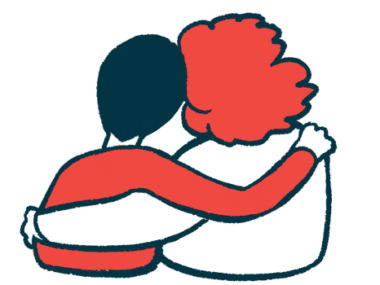When periods of good health don’t lead to needed rest
For caregivers, rest is important in both good and bad times
Written by |

The ending of John Krasinski’s film “A Quiet Place” offers an incredible moment in suspense as the Abbott family find themselves staring death in the face. After Evelyn’s (played by Emily Blunt) shotgun blast fatally immobilizes a vicious alien that had them cornered in the basement, audiences sigh with relief because the family is finally safe. That is, until we remember that even the slightest noise brings an onslaught of unstoppable killing machines.
When the characters glance at the security monitors, they discover that more monsters are racing toward the house. And while we’re left with the idea that the family will be fine because they know what to do, another disturbing notion lingers.
The movie is set around 473 days after an alien invasion. Without seeing the state of the entire world, we know it’s been devastated by the aliens’ arrival. Even with the necessary tools to beat them, Evelyn still faces grief while navigating a post-apocalyptic existence, raising three children, and preparing to battle the monsters she knows are coming.
There are breaks between the battles but conceivably no rest.
That’s the part they forget to tell you about caregiving for someone with a chronic illness.
The importance of rest
When our oldest daughter, whom we lovingly call Ladybug, was diagnosed with hereditary angioedema (HAE) in 2021, we were already in an exhausting battle that, up until that point, had no name. Yet we were familiar with hospital stays, long drives to doctor appointments, and excessive school absences.
Keeping Ladybug well, especially as she still tries to understand her illness, can be daunting. There’s still maintenance medication, checkups, the occasional at-home emergency infusion, and a pop-up trip to the hospital, but it’s nothing like what we experienced before. However, I wasn’t prepared for the trade-off during the great health periods.
During healthy spans, I experience breaks but not necessarily rest.
No, we’re not in the hospital, but I’m supervising school homework and special projects. Although we’re not driving to the doctor, I’m going back and forth from play rehearsals, dance auditions, and drum core practices. Sure, I’m not packing medical bags for a day trip around town, but we’re packing coolers, sleeping bags, and duffle bags for church camping trips.
“Yay, she’s well!” some will cheer.
But I’m still running, driving, packing, and staying up late. We have an active teenage daughter who is excited about feeling well and wants to do everything. How can I want a break from her feeling great? Isn’t that what we always wanted?
I recently discovered that I am exhausted because I’d assumed I only deserved a break when we were coming out of one of Ladybug’s health crises. The truth is, I need moments of rest during the good times, too.
In the world of caregiving, we often live our lives readying ourselves for the next time we encounter “the monster.” And sometimes, we take breaks, not because we need them, but because we’re preparing for the next battle.
Nobody can beat a caregiver when we’re celebrating our loved one’s well periods. We must also remember that it’s equally important to include our need for respite whenever those times occur.
Note: Angioedema News is strictly a news and information website about the disease. It does not provide medical advice, diagnosis, or treatment. This content is not intended to be a substitute for professional medical advice, diagnosis, or treatment. Always seek the advice of your physician or other qualified health provider with any questions you may have regarding a medical condition. Never disregard professional medical advice or delay in seeking it because of something you have read on this website. The opinions expressed in this column are not those of Angioedema News or its parent company, Bionews, and are intended to spark discussion about issues pertaining to angioedema.




Leave a comment
Fill in the required fields to post. Your email address will not be published.